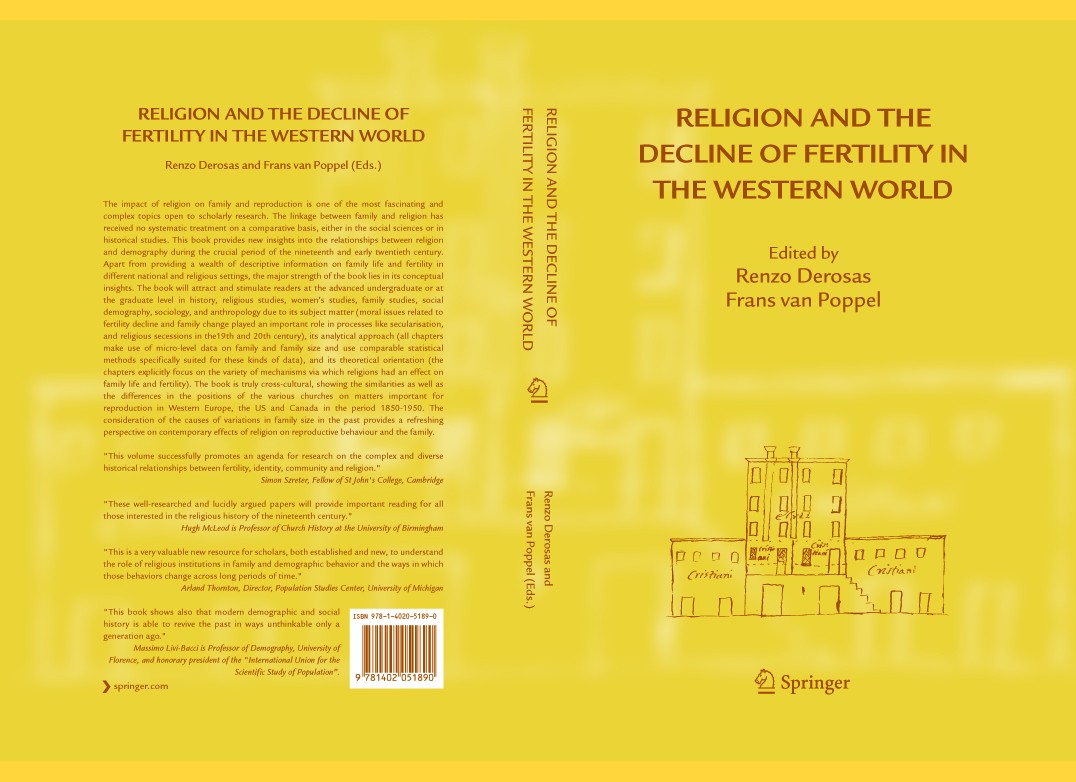| 书目名称 | Religion and the Decline of Fertility in the Western World |
| 编辑 | Renzo Derosas,Frans van Poppel |
| 视频video | http://file.papertrans.cn/827/826537/826537.mp4 |
| 概述 | Unique theoretical approach (the chapters explicitly focus on the variety of mechanisms via which religions had an effect on family life and fertility).The subject matter (moral issues related to fert |
| 图书封面 |  |
| 描述 | 1. RELIGION AND THE DECLINE OF FERTILITY IN THE NINETEENTH AND TWENTIETH CENTURIES: THE EMERGENCE OF A RESEARCH ISSUE During the last quarter of the nineteenth century, almost all European countries began to experience a decline in their fertility level. This transition was recognized as crucial almost from its inception, and provided a strong stimulus for the scientific study of fertility: until then there had been no apparent trend toward a decline in fertility (with the exception of France) and differentials in fertility had not been very conspicuous (Lorimer 1959: 142). Handbooks and articles on population – mainly of a statistical demographic nature – took up the question of falling birth rates and its causes. The bases for these studies were the routinely-collected population statistics that made it possible to observe fertility trends for administrative regions. By identifying administrative regions that differed in the timing and extent of the fertility decline, researchers hoped to find explanations for the fertility transition. Municipal statistical offices in larger cities such as Berlin, Vienna, Budapest and Amsterdam were able to obtain more diversified data than were |
| 出版日期 | Book 2006 |
| 关键词 | Demography; Family; Fertility; Fertility decline; Fertility transition; Institution; Nation; Nineteenth cen |
| 版次 | 1 |
| doi | https://doi.org/10.1007/1-4020-5190-5 |
| isbn_softcover | 978-90-481-7304-4 |
| isbn_ebook | 978-1-4020-5190-6 |
| copyright | Springer Science+Business Media B.V. 2006 |
 |Archiver|手机版|小黑屋|
派博传思国际
( 京公网安备110108008328)
GMT+8, 2026-2-8 05:21
|Archiver|手机版|小黑屋|
派博传思国际
( 京公网安备110108008328)
GMT+8, 2026-2-8 05:21


